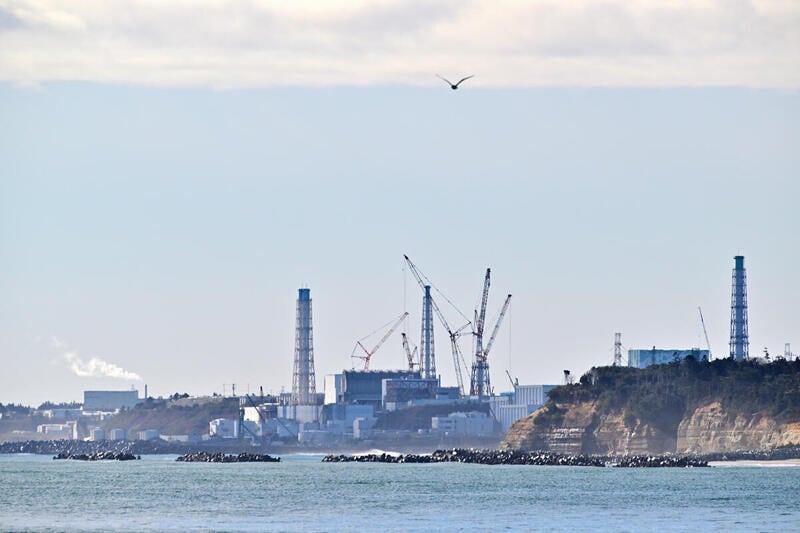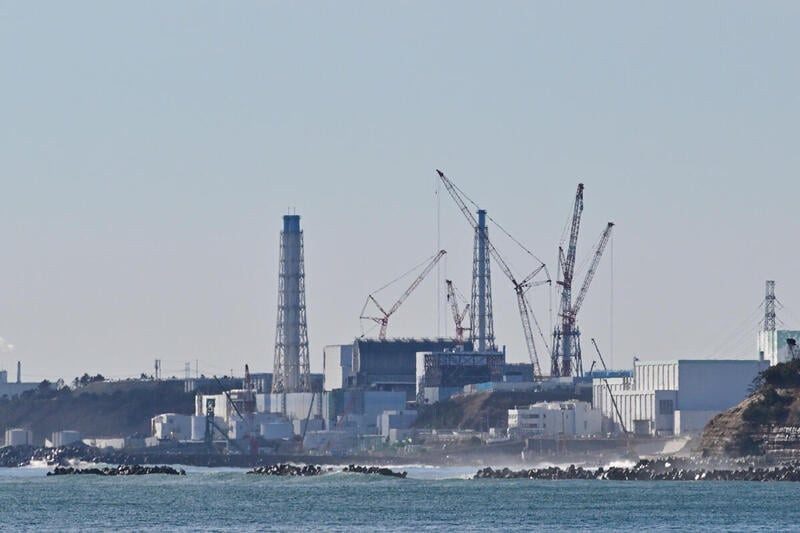Tokyo, Japan – 13 years have passed since the Great East Japan Earthquake and the Fukushima Daiichi nuclear disaster devastated the northeast region of Japan. Greenpeace Japan extends heartfelt condolences to the victims and their families who are still suffering the aftermath of this devastating catastrophe.
Sam Annesley, Executive Director of Greenpeace Japan said:
“In the hard-to-return areas of Fukushima Prefecture, the ‘specific return residence zones’ were established last year with decontamination efforts underway to facilitate residents’ return. However, the Japanese government has resolutely embraced nuclear power, and began discharging treated contaminated water from the Fukushima Daiichi Nuclear Power Station into the ocean last year. Yet, the Noto Peninsula Earthquake in January revealed the difficulty of managing nuclear risk and the inadequacy of evacuation plans in such disasters. We are strongly concerned about the government’s disregard for safety issues.
“Following the M7.6 earthquake off the Noto Peninsula on 1 January 2024, two of the five external power lines at the Shika Nuclear Power Plant reportedly became inoperable due to damaged transformer pipes, with full recovery estimated to take over six months.[1] It has been reported that this was an unexpected trouble that arose in the context of needing emergency backup power sources in the nuclear power plants after the Fukushima accident, which caused a meltdown due to loss of power. This unexpected setback underscores the persistent vulnerabilities of nuclear power, despite heightened focus on emergency backup power post-Fukushima.
“In Ishikawa Prefecture, the same earthquake damaged more than 74,000 houses as of 28 February 2024.[2] Some roads were rendered impassable, hindering indoor and outdoor evacuations outlined in government guidelines for nuclear accidents. Despite discussions over evacuation plans in nuclear plant areas over the past 13 years, it’s evident that ensuring resident safety in the event of a nuclear accident coinciding with a major disaster is nearly impossible.
“These are just a few of the numerous risks linked with nuclear power plants. In May 2023, laws related to the Green Transformation (GX) were passed in Japan. While the government’s GX policy pledges a shift towards renewable energy as the primary energy source, it also advocates for nuclear plant restarts and the development of next-generation reactors. Furthermore, the GX-related laws extend the operating period of nuclear reactors from 40 to over 60 years[3], actively disregarding the lessons from Fukushima.
“Meanwhile, the 7th Energy Plan of Japan, expected to be formulated by the end of 2024, holds significant importance in shaping the medium- to long term energy policy direction for the country. Against a backdrop of mounting international pressure for swift energy decarbonization, exacerbated by the global energy crisis stemming from conflicts, this plan assumes heightened importance.
“Contrary to the post-Fukushima policy aimed at minimizing nuclear reliance, the Japanese government has recently reverted to promoting nuclear power under the guise of ensuring stable energy supply and decarbonization. However, 13 years post-Fukushima, the risks such as those exposed by the Noto Peninsula earthquake seems to remain unmanageable, and the nuclear disaster’s impact continues to unfold today.
“In a country abundant in renewable energy sources, renowned for its technological prowess, and prone to frequent earthquakes, there’s no rational justification for persisting with nuclear power. The Japanese government must fundamentally reassess its current energy strategy, expediting the Basic Energy Plan and other initiatives to phase out nuclear and fossil fuels, while fostering energy conservation that enhances health, comfort, and efficiency, as well as promoting renewable energy adoption in harmony with local communities and the environment.”
ENDS
Notes:
[1] The Japan Times “Noto quake exceeded projections of nuclear plant operator” (3 Feb, 2024)
[2] Ishikawa Prefecture: Earthquake damage report(28 Feb, 2024)
[3] METI “The Basic Policy for the Realization of GX- A roadmap for the next 10 years -“
Contacts:
Mitsuhisa Kawase, Senior Communications Officer, Greenpeace Japan: [email protected], +81 (0)70-3195-4165
Greenpeace International Press Desk, +31 (0)20 718 2470 (available 24 hours), [email protected]


